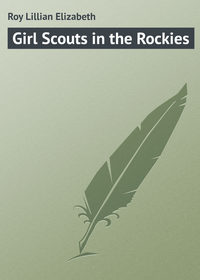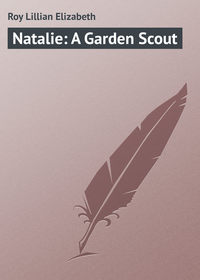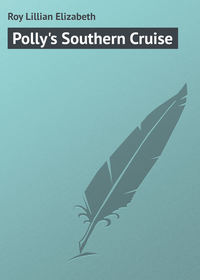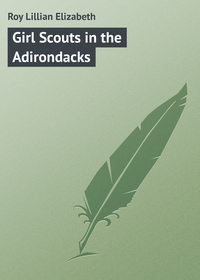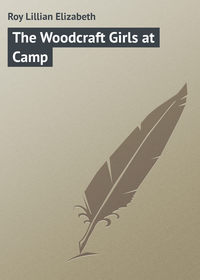 полная версия
полная версияThe Little Washingtons' Travels
Here they visited the old Fort Nonsense on the ridge, back of the town, and then inspected the headquarters, where a fine collection of furniture and other relics was kept on exhibition by the Washington Association of New Jersey.
Later they drove through Baskingridge and cross-country to Pluckimin and thus on to Brunswick. Trenton was passed through on the homeward route, and then on to Jersey City, and across the ferry to New York. In going through Trenton the old hall and other historic buildings were pointed out to the children.
That night George had a suggestion to offer.
"We've done nothing but see, and see, and see places since we've landed here from home, and I say that we now do something different."
"But this trip was planned to show you children all we could to enlighten you on history," replied Mrs. Parke.
"I feel so light that it would take little to waft me up to the sky," said Martha, hoping so to create sympathy.
"Now that we have completed the round of places to be visited in the interests of Revolutionary history, suppose we continue on our way to Philadelphia. There is a mine of historical places to be visited in and about that city; besides we will be home and we won't have to bother like we do in a hotel," said Mrs. Davis.
"I second that motion!" cried Jack.
"But our week of vacation is not yet over in New York," argued Mr. Parke.
"Well, why not leave you two men behind to finish up your week, while we go on with the children to prepare the people of the Quaker City for the unexpected coming of the Little Washingtons?" laughed Mrs. Parke.
"Do say yes, father!" begged Martha.
"I see! My own daughter wants to get away from my company!" exclaimed Mr. Parke tragically.
"We wouldn't if you were finished with your business affairs, but we know right well what will happen if we tear you away now! It will mean a delay all 'round," said Mrs. Parke, from former experiences.
"Well, then Sam and I will say 'good riddance' and send you off on the morrow's train from the Pennsylvania Station," agreed Mr. Parke.
CHAPTER VI
GEORGE'S STRANGE BATTLE
That evening some city friends called at the hotel to see the Parkes and Davises, and wishing the children to get a good night's sleep, the parents decided to receive the callers in a parlor downstairs, and turn down the lights in their own parlor.
After they had gone down, George felt so restless he could not keep quiet, so he slipped out of bed and went out to the parlor to amuse himself. The lights were turned up again, and a souvenir book of the Woolworth building was found on the table. This book had been purchased when they were up in the tower, but so much had been crowded in the few days in the city, that no one had taken time to look at the pictures.
Now, however, George found the pictures and text very entertaining for want of company or something better to do. He pored over the illustration of the tower, wondering at the great height of the structure, and the manner in which it was built.
He sat in a corner of the comfortable couch, his bare feet sticking out from his new pajamas purchased that very day. As he read the book, his eyelids drooped several times, but George always fought off sleep to the very last moment, so he bravely refused to give in to it now.
Suddenly, as he turned a page of the book, he heard a stealthy step behind him, coming from the open window. He turned just in time to see a masked face lean over the couch, and then a great bony hand reached out and grabbed him under the arms and lifted him up.
George immediately essayed to scream for help, but a hand was placed over his mouth, while the man growled: "You help me gag him, then we'll tie this towel tight about his wrists and ankles."
This was done, while poor George was helpless to defend himself. He wondered if George Washington ever had such a cowardly game played on him.
"Now we'll sneak downstairs with him and watch our chance to get away," whispered the man to his accomplice.
George felt himself carried to the door, but in a sudden twist of his body he managed to slip out of the villain's grasp, and in rolling upon the floor, he upset a stand with a jardinière of flowers on it. This crashed down and woke up the other children, which was just what George wanted.
The two rascals quickly caught up their victim again, and rushed out, leaving the door wide open. The three other children were heard running out and calling "George! George!" but he could not reply.
Just as the two men reached the head of the stairs, the three pajamaed children ran out in the hall and saw them carrying George away. He saw them follow and heard them scream for help, but he himself was helpless to move or utter a sound.
Down the many flights of stairs the two men now rushed with their burden, the three night-dressed children running after. On the main floor, they fled down the wide marble ornamental stairs and through the lobby, throwing people right and left as they rushed madly for the door. The three white-robed friends of George followed close at the heels of the villains.
A hue and cry then started, and as the men reached the curb to jump into a waiting taxicab, the people of the hotel and the crowds on the street joined in the chase. The Parkes and Davises, and the children as well, all ran screaming to the sidewalk, yelling to every one to stop the runaways. George could hear this until the cab turned the corner and tore down Broadway.
As the reckless driver flew downtown, George held his breath in constant fear of being smashed to atoms by colliding with a trolley or automobile crossing one of the many streets.
Down the densely-thronged thoroughfare flew the cab, the police whistling signals for it to stop, and shooting revolvers at the tires to cause a puncture, but, strange to say, the cab escaped without a single damage to windows or tires.
By the time the runaways reached Union Square, a long mob of people were tearing after them, all in hot pursuit of the villains. In the foremost ranks ran the parents and the bare-footed, night-robed children. George heard the men say so, as they watched from the window in the back.
Down Fifth Avenue went the cab until it reached Washington Square. Under the famous Washington Arch it flew, one wheel striking the base and causing the cab to swerve. As it righted itself again, one of the wheels came loose, and so on down, down they tore in constant danger of throwing the wheel and being flung into a stone building or a passing trolley.
That fearful shaking and fear almost made George sick, but he remembered how Washington must have felt when everything seemed against him and his country. "Did he give up and let Howe get away with him and his army? No, siree! He did not. Neither will I!" thought George.
Finally the cab reached City Hall Park, and around the park it flew, while the two men wondered where they could go with their captive.
"Can't cross the bridge without being arrested, you know. They have guards there," said one.
"Can't go across to Liberty Island at this time of night. Can't go anywhere except to the Woolworth Tower!" said the other.
"Just the place! If any one follows we will drop him off!" threatened the first man.
So the cab pulled up by the side entrance to the Woolworth building, and the two men hustled George on an elevator inside, and made the man send the elevator to the top where the room was that visitors had to pass through to reach the tower. Here they found the man asleep, as no visitors were expected that night.
They bundled George on the tiny elevator that ran to the very tip-top of the tower, and one of the rascals ran it up. Then they went out on the narrow balcony that circled the tower. As they walked around here, dragging George by the belt of his pajamas, they watched the mob tearing across City Hall Park in pursuit.
George could look over the parapet, and he was sure he saw his mother in front, calling to him, 'way up in that tower. He wanted to assure her that he was brave and would be all right, but one of the men thought he was signalling to his friends.
"What shall we do if some of them follow us up here and try to catch us?" wondered one of the men.
"We'll warn them – we'll throw him over if they try to come up!" said the other, shaking a fist at the crowds in the park.
Meantime, as many as could get on the elevators, did come up to the room, but the small elevator that ran to the tower would only hold five or six at a time, and there was no one to run it. The man who slept in the chair could not be roused, so Mr. Parke said he would run the lift to the top.
The two villains threatened in vain – George's father started for the balcony to save his son. Then the men lifted George upon the stone guard, and he could look down into the dizzy depths, where the people ran about like ants on the earth.
"If you step another inch, down he goes!" roared one of the men.
"What shall we do?" wailed Mrs. Parke, wringing her hands.
While one of the men stood guard at the door that opened on the balcony, the other carried George around to the other side of the balcony. The moment George found but one man to hold him, he squirmed and wriggled so that he soon got out of the fellow's hold, and then he managed in some way to free his two hands.
The man tried to hold him again, but with his hands free George also managed to free his feet. Then he jumped up and defied the rascal. As the man turned to call his partner, George saw that the mayor had ordered an aeroplane from Governor's Island to rise and save him. Determined to hold off the two villains long enough to give the aviators time to reach the tower, George ran around and around the tower – the door leading to the balcony having been bolted on the outside by the villain on guard to keep help and friends from reaching George. Then, as the aeroplane almost flew over George's head, the men saw it and realized that they would soon lose their prize unless they could catch him again. So one of them planned to go one way, and the other the other way, and so catch George before he could be carried off.
Fortunately for George, an experienced aviator flew the machine, and as he swooped down in a graceful loop, he dropped a tackle out and caught George in the back of his pajamas. Just as the two men met in a swift run around the balcony and bumped together, they saw their victim lifted out of their grasp, and they jumped to catch hold of him.
But the plane was swiftly skimming over the city on its way to the hangars on Governor's Island. George never dared to move or even breathe for fear that the great hook would rip the madras of his pajama coat and so let him drop.
The aeroplane reached the water, however, and was speeding over the bay to the island, when George heard an ominous r-r-rip at his back. He tried to call to his friend, the aviator, to haul him up, but the madras kept right on tearing once it started, and just as George could see the aviation field on the island, and could feel the aeroplane rapidly descending, the material in the coat gave way entirely and down plunged the luckless George into the deep water.
The mayor had very thoughtfully ordered the whistles on the bay to blow, and many scows and other craft tied up for the night, showed lights or blew whistles. Just as the coat began tearing, a powerful searchlight, called the Sperry light, shot across the bay, and when George fell, a great chorus of steam-whistles started their warning signals to ferryboats and other ships that were still passing back and forth.
George felt himself going down, down into the water, but it was not as cold as he feared it might be. He soon bobbed up on the surface, and no sooner had his head appeared in the great flashing pathway of light shed on the bay, than a submarine shot past and a long arm lifted him out of the water and dragged him into the hold.
Down went the submarine, and George rubbed the salt water from his eyes to find himself a prisoner of some fierce-looking German pirates.
They taunted him at first, but when the captain came in from his private den, they were silenced.
"Who are you?" demanded the captain.
"I am George Washington, commander-in-chief of the American forces!" proudly replied George.
"Yah! Such a fine prize ve never hoped to get in New York vaters. Frents, ve sail home mit him to once, and present him to our Kaiser!" gloated the captain, rubbing his hands together.
Immediately the men in the submarine went to work, and George felt the undersea craft fairly flying through the water. But they left him alone, never dreaming that he was a brave and determined fighter. When no one was looking, George crept over to the opening where the torpedoes were shoved in and launched. He had a desperate idea.
He managed to swing a torpedo about and slide it in the tube. Then he managed in some marvelous manner, to close the door of the tube, first seating himself astride the torpedo. He pulled with all his might on a cord that hung inside the tube, and simultaneously with the opening of the steel plate in front of the torpedo, the swift missile shot forth from the submarine.
George had no idea where it might strike, but he clung like a leech to the slippery sides, as it flew through the green waters. So swiftly did it fly that George never had a good look at the shark that swam up eager to eat him.
Suddenly something deflected the torpedo, and it rose up on the surface and skimmed over the top of the waves. Straight on for Brooklyn Heights the awful explosive went, and all George could see was General Howe giving the sign to hang Nathan Hale to a telegraph pole, when the torpedo struck and blew all of Long Island into the air. George rose with it, and while he tried to catch his breath, the great American eagle flew over his head and stretched out a claw. He was firmly held in this clutch, and carried dangling over the East River and right up to the cupola of City Hall, where the eagle had built a nest, all unknown to the citizens.
George was just about to pat the eagle on the head, when the patriotic mayor climbed to the cupola and thanked the eagle for his services. Then he turned to George:
"I knew such a great general as Washington could not be carried a prisoner to the Kaiser. I have kept our great American eagle roosting in this cupola for just such emergencies. I knew there were Black Hands and dangerous spies in the city, but I never dreamed they would dare to make off with our Washington! All of the loyal and patriotic American citizens of this city agreed with me, that New York needed the eagle here to keep trouble away, but who could tell to what lengths these bad men would go? – even so far as to kidnap our great and true Washington. Now that we have saved the city from the grasp of the enemy, who would have destroyed it utterly, I wish you would make a speech to the crowds waiting below in the park."
George consented, and as he stood on the edge of the cupola, holding the mayor's hand on one side, and leaning gracefully on the American eagle as it stood beside him on the other side, the throngs of people cheered and cheered for the great general who blew up the British army on Long Island.
Just as George cleared his throat to address his countrymen something terrible happened, and George found himself rolling on the floor of the hotel parlor, where he had fallen from the couch.
He sat up and rubbed his eyes and stared around to see if the patriotic mayor was safe and sound, and what had become of the American eagle, when the elders came into the room, laughing and talking.
"Why, George! You out of bed?" cried Mrs. Parke.
"Bed! Why, I haven't had a second's time to think of bed! Ever since those two masked rascals, who were enemies of the mayor, grabbed me, I've been in so much trouble that the American eagle had to save me!" exclaimed George, getting up from the floor and limping over to replace the Woolworth souvenir on the table.
"What are you all laughing at, anyway?" cried George testily, as he limped into his room, wishing he had had time to speak that fine speech he had ready.
CHAPTER VII
BATTLE-GROUNDS AROUND PHILADELPHIA
The next morning the ladies and children left New York for Philadelphia, the home of the Davises. On the journey there Mrs. Parke was begged for a story of the time when Washington fought so hard to protect the city they were bound for.
"After leaving Brunswick, New Jersey, when Cornwallis appeared there, Washington retreated, leaving twelve hundred men to protect Princeton, and, with the rest of the army, proceeded to Trenton, on the Delaware. He collected and guarded all the boats on the river for seventy miles either side of Philadelphia, then sending the sick over to the latter city, he followed with baggage and equipment. Leaving the thousand men at Princeton to keep up the appearance of resistance to the English army, he was about to move his main army, when he heard that Cornwallis was planning to cut off his retreat across the Delaware. Hastily calling the men from Princeton, he began a quick retreat, and managed to get all his men across the river and hold the boats on the Philadelphia side, about the time the British army reached the river on the Jersey side.
"As no boats were to be had, the enemy could not cross, so the American army had a rest on the Pennsylvania side. It was during this retreat from New Jersey that Washington heard of the capture of Lee, at a tavern near Baskingridge, where he had been sleeping some distance from his men.
"When the British found they were cut off from pursuit of the American army, they fell to enjoying themselves in New Jersey, while waiting for the ice to freeze solid on the river to enable them to cross to Philadelphia.
"But the Hessians indulged in such open cruelty that many of the inhabitants changed from the proffered friendship to bitter enmity.
"On receiving news of the different cantonments and numbers of the British troops, Washington decided to make a bold effort to check their progress.
"He formed his men into three divisions, purposing to attack the Hessians, 1,500 strong, where they were posted at Trenton; but in trying to cross the Delaware, one division, under Cadwallader, failed because of the tides and the piled-up ice on the Jersey bank.
"The second division was to cross at Trenton Ferry, but this also failed on account of the ice. The third, under command of Washington himself, consisting of about 2,400 men, accomplished the passage with great difficulty.
"Had not the obstacles and weather prevented the other two divisions from joining Washington in this fight, the result of this masterly stroke would have been to sweep the British from their holds on the Delaware, and thus establish a firm foothold in New Jersey. As it was, Washington had to forbear a final battle, and remain satisfied with having won a partial victory. He re-crossed the river with his prisoners, six pieces of artillery, 1,000 stand of arms, and valuable military stores.
"This victory revived the spirits of the army, and every spark of patriotism in the land was burning brightly, when Washington again crossed the Delaware with 5,000 men to recover as much as possible of the territory overrun by the British.
"Cornwallis was on the point of sailing for England, thinking the campaign ended for the winter season, when he was compelled to resume command of his forces.
"Battle between the two armies raged all day, and at dark the British, confident of victory the following morning, desisted.
"During the night Washington silently decamped, leaving fire burning and sentinels advanced, while small parties guarded the forts. By circuitous route, the Americans approached Princeton, where an engagement with the British took place at daybreak.
"When the Americans drove headlong on, the British took refuge in the college, but later surrendered to the Americans.
"On the coming of daylight, Cornwallis discovered the flight of the American army, and soon afterward heard firing from the direction of Princeton. He immediately understood the wise tactics of the American commander, and fearing for the safety of Brunswick, where valuable magazines were collected, he advanced toward that place, and was close upon the rear of the American army before they could leave Princeton.
"Now Washington found himself in a perilous position. His men were exhausted from lack of food and rest for two days and nights; he was pursued by the enemy, very superior in forces, well clothed, fed and rested, who would overtake him before he could fulfil his plan to take Brunswick. Under these circumstances he abandoned the project, and took the road leading up the country to Pluckimin, breaking down the bridges over Millstone Creek and other streams, and otherwise creating obstacles to the pursuit of the enemy; but Cornwallis hastened to Brunswick, where he found all plans had been perfected for the removal of the stores and defence of the place.
"But now came the retribution for the British, who had afflicted the Jerseymen on previous trips and stays. The people hung upon the steps of the retiring army and wreaked vengeance on the men whenever opportunity offered itself.
"Washington fell back on Morristown, in the hills of New Jersey, difficult of access, and from this point, where his winter quarters were made, he overran different sections of Jersey, and by judicious movements, wrested from the British most of their conquests in the state. Thus terminated the eventful campaign of 1776.
"The success of Washington in the Jerseys permitted Congress to meet again in Philadelphia in February, where they determined to interest foreign countries in their fight for Liberty.
"Franklin and Lee were sent to Paris to enlist the help and sympathies of France, and thus it was that the valiant Marquis de Lafayette was destined to shed glory over the Land of Liberty. In the spring, he reached America and joined Washington's army, with the rank of major-general.
"Another illustrious name that braced the muster-roll of the American warriors that year, was that of the gallant Count Pulaski, the courageous Pole.
"In August, after many encounters with the British at other places, Washington moved his army. They marched through Philadelphia down Front Street, and up Chestnut Street, proceeding by way of Chester to Wilmington. From that time on, for two weeks, Washington thoroughly reconnoitered the country round about between Philadelphia and the Chesapeake.
"General Howe landed his British forces a few days' march from Philadelphia, where he expected to gain the right of the American army.
"After many engagements, the British army being very superior in numbers and equipment, Washington was gradually forced to retreat, and Howe took possession of Philadelphia."
Mrs. Parke suddenly concluded the story to the surprise of the audience, and George instantly said: "That isn't half of the story. You skipped a lot about the British before they could get in Philadelphia, and you never said a word about the headquarters at Brandywine, or the Battle of Brandywine!"
"Well, as you know it so well, why don't you tell it to us?" suggested Mrs. Parke.
"I don't want to. We'd rather hear you tell it," replied George anxiously.
"But I'm tired of telling it. Let Martha tell it."
"Oh, I only know about Chew's House and Red Bank and some other places in New Jersey that year," protested Martha.
"I know all about Valley Forge, and the dreadful time our army had that winter," remarked Jack.
"Well, I thought it was time to ring for some light refreshments, as we will be in Philadelphia in less than half an hour, and it will be past luncheon time when we arrive," hinted Mrs. Parke, who had other motives for not continuing the story of Philadelphia.
To this new arrangement the children immediately agreed, and the wars were forgotten in the far more interesting present campaign on luncheon.
The small tables were brought in and opened before the travellers, to the great delight of George and Martha, who had never lunched this way before, although Jack and Anne had spoken of it, when they travelled from Philadelphia to Washington.
"I think we will each have a cup of consommé," said Mrs. Parke, reading from the small menu card.


